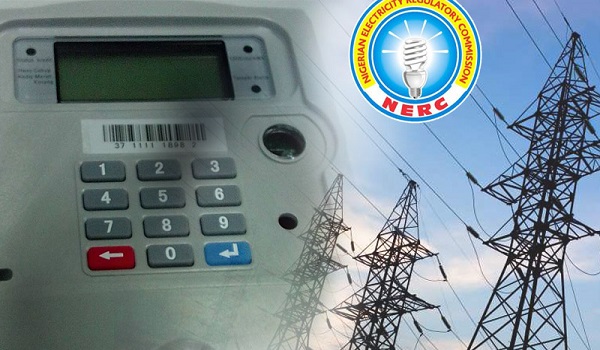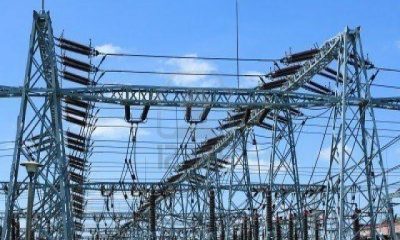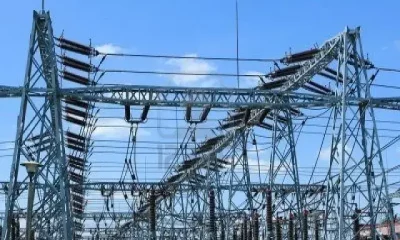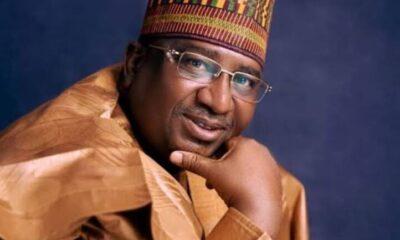Headline
Discos Intensify Efforts For Electricity Tariffs Hike Approval

There is no respite yet for electricity consumers with Distribution Companies (DisCos) still pushing ahead with their bid for Federal Government’s approval to raise the tariffs.
Last week, the National Electricity Regulatory Commission (NERC) halted the 40 per cent tariff hike planned by the DisCos following an outcry by Nigerians, who are reeling under the effect of petrol subsidy withdrawal.
NERC’s action came after some of the DisCos notified consumers of increased tariffs.
It was learnt yesterday that the DisCos are billed to meet with NERC in Abuja next week.
Senior officials of two DisCos, who confirmed the scheduled meeting, declined to release the agenda.
But it was learnt that tariffs raise is central to the parley.
The NERC will also meet with other power institutions such as the Transmission Company of Nigeria (TCN) and Generating Companies (GenCos).
It was learnt that NERC has scheduled a meeting with all the 11 DisCos and other critical stakeholders in the electricity supply and loop.
The Nation exclusively gathered that the meeting will hold between Monday and Friday.
NERC will meet on Monday and Tuesday with Managing Directors and top management of DisCos, GenCos and TCN.
On Wednesday and Thursday, it will meet with major electricity consumers, firms, suppliers and service providers, such as suppliers of gas, among others.
How the DisCos can shore up their revenue, especially following a 40 per cent loss, and their inability to meet their performance targets, will also be discussed, it was gathered.
All the DisCos, based on the NERC’s June 2023 data, recorded losses after exceeding their allowed targets for Aggregate Technical, Commercial, and Collection (ATC & C) losses.
The ATC & C losses include technical, commercial and collection inefficiencies in the power distribution process, such as power theft, meter tampering, billing inaccuracies and revenue leakages.
The failure to meet the target comes at a time when the sector was considering an increase in electricity tariffs brought about by macroeconomic conditions.
Sources close to the top management of DisCos that will be attending the meeting confided in The Nation that the issue of tariffs increase will be knotty, but they are ready to really push for its approval.
It was gathered that another option to be mooted will be to have a gradual increment instead of the 40 per cent tariffs increase at once.
This means that the DisCos may settle for increments on pro-rata basis until they finally get to the desired target of 40 per cent.
However, should the proposal be rejected, the DisCos may ask the government for a subsidy in the form of a “relief package” on their equipment importation and other critical operational transactions executed in foreign exchange, especially with the exchange rate unification.
But this may be a difficult option given that in March 2022, the former Minister of Finance, Zainab Ahmed, revealed that the government had ‘quietly’ removed the subsidy on electricity tariff or any buffers it was paying in the sector.
“We have been able to quietly implement subsidy removal in the electricity sector and as we speak, we don’t have subsidies in the electricity sector.
“We did that incrementally over time by carefully adjusting the prices at some levels while holding the lower levels down,” she said at a virtual meeting of African Finance Ministers (AFM) and the International Monetary Fund (IMF) back then.
DisCos have insisted that without increasing tariffs, their continued survival in business will be threatened.
Headline
Fagbemi warns against obstructing EFCC from performing its lawful duty

The Minister of Justice, Lateef Fagbemi, SAN has warned against obstructing the Economic and Financial Crimes Commission (EFCC) from carrying out its lawful duty .
Fagbemi’s warning is contained in a statement in Abuja.
“This is a matter of very grave concern, it is now beyond doubt that the EFCC is given power by the law to invite any person of interest to interact with them in the course of their investigations into any matter, regardless of status.
“Therefore, the least that we can all do when invited, is not to put any obstruction in the way of EFCC, but to honourably answer their invitation.
“A situation where public officials who are themselves subject of protection by law enforcement agents will set up a stratagem of obstruction to the civil and commendable efforts of the EFCC to perform its duty is to say the least, insufferably disquieting’’.
He added that running away from the law will not resolve issues at stake but only exacerbate them.
“Nigeria has a vibrant judicial system that is capable of protecting everyone who follows the rule of law in seeking protection.
“I therefore encourage anyone who has been invited by the EFCC or any other agency to immediately toe the path of decency and civility by honouring such invitation instead of embarking on a temporising self-help and escapism.
“This can only put our country in bad light before the rest of the world’’.
He said institutions of state should be allowed to function effectively and efficiently.
“I stand for the rule of law and will promptly call EFCC, and indeed any other agency to order when there is an indication of any transgressions of the fundamental rights of any Nigerian by any of the agencies’’.
NAN reports that the EFCC had on Wednesday warned members of the public that it was a criminal offence to obstruct officers of the Commission from carrying out their lawful duties.
Section 38(2)(a(b) of the EFCC Establishment Act makes it an offence to prevent officers of the Commission from carrying out their lawful duties. Culprits risk a jail term of not less than five years.
The warning , the EFCC said, became necessary against the background of the increasing tendency by persons and groups under investigation by the Commission to take the laws into their hands by recruiting thugs to obstruct lawful operations of the EFCC.
On several occasions, the anti graft agency said, operatives of the Commission have had to exercise utmost restraint in the face of such provocation to avoid a breakdown of law and order.
Headline
Unknown Gunmen Abduct Channelstv Reporter In Port-harcourt

Some unknown gunmen have kidnapped Joshua Rogers, the ChannelsTV reporter in Port-Harcourt, the Rivers State capital.
Politics Nigeria learnt that Rogers was picked up close to his residence at Rumuosi in Port Harcourt and to an unknown destination by the gunmen around 9pm on Thursday, April 11.
The reporter was driving his official ChannelsTV branded car when the hoodlums accosted, pointed a gun at him and took him away in the same vehicle.
Rogers was said to be returning from his official assignment in Government House after a trip to Andoni for a government event when the incident happened.
Already, the gunmen were said to have contacted his wife and demanded a N30million ransom for bis release.
His cameraman confirmed the incident and appealed to his abductors to set him free unconditionally.




















